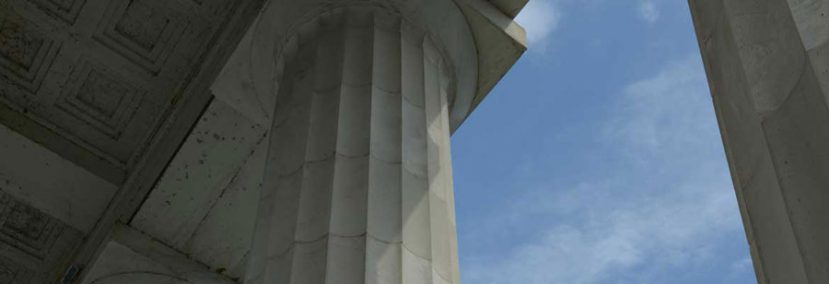On June 19, 2017, a unanimous U.S. Supreme Court (Judge Gorsuch did not participate in the hearing or decision) held that the U.S. Patent and Trademark Office (PTO) could no longer refuse federal registration of “disparaging trademarks” holding that the “disparagement clause” of the Federal Trademark Act (also known as the Lanham Act) violates the Free Speech Clause of the First Amendment.
Background of Trademark Law
The central purpose of a trademark is to facilitate source identification. For those trademark owners who seek federal protection on the Principal Register, a federal trademark registration confers important legal rights and benefits, such as:
- The owner of a trademark on the Principal Register may rely on the details in the certificate of registration without the need of extrinsic evidence to prove their validity;
- The registration serves as constructive notice of a claim of ownership, eliminating the need to prove dates of first use;
- The registration may be recorded with U.S. Customs to stop infringing goods from being imported;
- After five years of continuous and exclusive use the registration becomes incontestable, solidifying the registrant’s exclusive right to use the mark, subject to certain statutory defenses.
The PTO must register source-identifying trademarks unless the mark falls into several categories of marks that are precluded from registration. Among these categories are marks that are merely descriptive, confusingly similar, geographically descriptive or misdescriptive. Another restriction is the ban on marks that may “disparage…persons, living or dead, institutions, beliefs or national symbols or bring them into contempt or disrepute.” This is known as the disparagement clause.” (15 U.S.C. 1052(a))
Facts of the Case
This case came before the court when an Asian-American ‘80s inspired dance rock band from Portland, Oregon, tried to register the mark THE SLANTS for entertainment services and its mark was refused registration on grounds it was likely disparaging to people of Asian descent. Simon Tam is the band’s bassist and founder. He came up with the band’s name because he wanted to pay tribute to their ethnic upbringing. Tam’s intent was to take ownership of the stereotype of referring to Asian- Americans as having “slanted eyes” and reclaim the stereotype for something good. Moreover, he liked THE SLANTS because the mark also had a double entendre – as artists they could also project their “slant” on life through their music.
Procedural History
When Tam applied for the trademark in November 2011, the mark was rejected on grounds the mark was likely disparaging to persons of Asian descent. He appealed to the Trademark Trial and Appeal Board and the board affirmed. The Federal Circuit reversed finding the disparagement violated the First Amendment’s Free Speech Clause due to the fact that the disparagement clause engages in viewpoint discrimination. Tam’s argument at the Federal Circuit was that so long as the so called “disparaging marks” were advancing a message that the government found to be a positive one, the PTO would allow registration, and that this was tantamount to viewpoint discrimination. The Federal Circuit agreed, and the government appealed.
Supreme Court Decision
Writing for the court, Justice Samuel Alito found the disparagement clause to be viewpoint discrimination. “If there is a bedrock principle underlying the First Amendment, it is that the government may not prohibit the expression of an idea simply because society finds the idea itself offensive or disagreeable.” He went on to say, “we have said time and again that the public expression of ideas may not be prohibited merely because the ideas are themselves offensive to some of their hearers.”
The court concluded that trademarks are private speech, not government speech and therefore efforts to censor or control the expression of trademarks is viewpoint discrimination. The court also dismissed the government’s arguments that trademark registrations were “government subsidies” since the applicants themselves pay registration, maintenance and renewal fees. Similarly, the court dismissed that trademarks are they part of a “government program.” Having struck down the disparagement clause on the grounds that it violates the Free Speech Clause of the First Amendment, the court left open the issue of whether trademarks are commercial speech subject to more relaxed scrutiny under the court’s Central Hudson test. The court was clear that this decision is only about the disparagement clause and the ability to register marks and that this decision should not be interpreted regarding the invalidity of any state unfair competition laws or libel laws. Immoral and scandalous marks are separate from this decision and other cases are pending that may bring clarity to those bans under the Lanham Act.
Impact of the Decision
Not only will the Slants be granted their trademark registration, the Washington Redskins’ trademarks will likely be reinstated. (Although federal litigation is still pending between Pro Football, Inc. and Native American groups after the REDSKINS trademarks were cancelled in 2014 under the disparagement clause.)
Some believe there is likely to be an uptick in the filing of disparaging trademark applications. However, all other provisions of the Lanham Act are still valid.
In order for a federal trademark registration to issue, a mark must be used in interstate commerce. While it is possible that many new trademark applications for a disparaging trademark may be now be filed, if those marks are not ultimately used in commerce, their registrations will not be granted. Moreover, applications may still be refused if they fail to function as a trademark or are merely ornamental terms. Regardless, the importance of this case cannot be overstated. Concurring in the opinion, Justice Anthony Kennedy wrote: “a law that can be directed against speech found offensive to some portion of the public can be turned against minority and dissenting views to the detriment of all. The First Amendment does not entrust that power to the government’s benevolence. Instead our reliance must be on the substantial safeguards of free and open discussion in a democratic society” – establishing a new slant on free speech as it is applied to disparaging trademarks.
Please contact us if you have a question about this case or any trademark matter.

Stacey C. Kalamaras is the founding partner of Kalamaras Law Office, LLC. She has extensive intellectual property experience with a particular focus on trademark prosecution and enforcement. She has protected some the world’s largest brands in more than 150 countries and specializes in helping small and medium sized businesses grow and protect their brands. Contact her at info@klolegal.com.
Stacey is also the founder and lead instructor of Trademarkabilities®, an online trademark academy for lawyers, whose mission it is to prepare lawyers to be confident and effective practitioners before the USPTO. To learn more, please visit https://www.trademarkabilities.com/.

